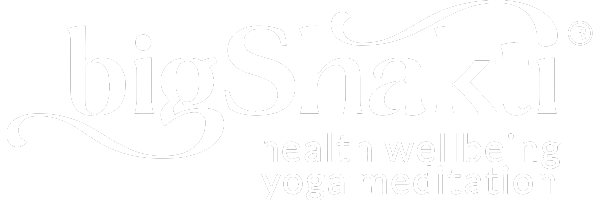Yoga of Mental Health Workshops → More Info
Insufficient Rest and Poor Sleep Causes Heart Disease

Rest is at the heart of a happy, healthy life, but so many people today are struggling to get enough of it. Busy lifestyles, stress, overwork, and constant fatigue are taking a toll, leaving millions unable to properly rest, recharge, and rejuvenate. The reality is that poor sleep causes heart disease and other serious health problems, so it's more important than ever to make quality sleep a priority. The sad truth is, many have lost the knack for good sleep and are facing clinical sleep deprivation or sleep disorders that impact their well-being.
So what can you do to get sufficient rest and better sleep? Let's discuss...
Work hard, party hard
We have become blind to the importance of sleep.
"Work hard, party hard" is an accepted way of life in our modern 24/7 lifestyle.
Sleep is given a low priority. It is seen as a weakness or something that gets in the way of life rather than as the foundation of a healthy and full life.
Sleep needs to be redefined as an activity to be treated with the utmost respect, like exercise and a good diet. Sleep and our ability to relax and rest deeply are the basis of a good life.
The following video, from Arianna Huffington's TED talk "How to succeed? Get more sleep," highlights our poor attitudes toward sleep and asks us to rethink our attitudes.
Poor Sleep Statistics
The National Commission on Sleep Disorders Research in America has labeled insomnia “a silent epidemic of staggering proportions.”
- 30-40% of people in the USA and Australia have insomnia and poor-quality sleep each month.
- 40-70 million Americans experience either chronic or intermittent sleep-related problems, costing $15 billion in health care and $50 billion in lost productivity.
- Sleeplessness is a chronic problem for one in ten Australians, over 2 million people.
- Approximately 5-10% of people use prescribed sleeping pills. Another 5-10% of people use over-the-counter prescriptions.
- An unknown number of people use alcohol and other substances at night to try to help them sleep.
Yet, these attempts to sleep well usually do not provide the deep rest and recuperation we seek.
How Much Restful Sleep Do You Need?
The amount of sleep and rest each of us needs is different. There is a consensus that 6 hours of good sleep is a minimum for most people. However, the best way to judge if you have had sufficient rest and sleep is to feel how tired you are and how well or poorly you perform during the day.
Ideally, you get a full night of high-quality sleep that is deep, restful, and uninterrupted. However, if you wake feeling tired and want more sleep, practicing a technique like Yoga Nidra Meditation when you wake up and during the day will enable you to get the requisite hours you need for good health.
Effects of Sleep Deprivation
Going too long without sleep diminishes your ability to function. It’s like being drunk.
Extended periods of sleep deprivation result in the brain shutting down. We are unable to make accurate judgments, and in extreme cases, this can result in hallucinations. Lack of rest and untreated sleep disorders:
- Reduce the quality of life
- Lower productivity in school and workplace
- Increase the chance of ill health and death from heart disease, diabetes, depression, and obesity
- Increase the risk of accidents associated with excessive sleepiness.
Professor Charles A. Czeisler from Harvard Medical School states that in the United States, 80,000 people fall asleep at the wheel every day, an average of one person every second. Every two minutes, one of those people crashes.
Research is now showing that lack of rest and the resultant burnout and depletion of energy are significant factors in several chronic illnesses, especially heart and blood vessel diseases.
Major Sleep Research
Recent medical research from Holland (2011) studied over 20,000 men and women for over 12 years. They showed that poor quality sleep combined with insufficient sleep time is linked with a massively increased risk of heart and blood vessel disease.
Poor Sleep and Heart Disease
Researchers discovered that short sleepers (6 hours or less) had a 15% higher risk of cardiovascular disease (disease of the blood vessels) and a 23% higher risk of heart disease (coronary artery disease) compared with people with normal sleep duration (seven to eight hours).
Researchers found no association between poor-quality sleep and cardiovascular disease. It was the combination of poor quality and short duration that caused the problem.
People who had a combination of poor quality sleep and short duration sleep had a massive 65% higher risk of cardiovascular disease and an 85% higher risk of heart disease than people with normal sleep duration and good sleep quality.
This means that insufficient good quality sleep and lack of rest lead to exhaustion, which sets up the perfect conditions for degenerative illness. Good sleep has to be experienced most nights if we are to function to the best of our potential and remain free of disease.
Get Extra Sleep Credits To Improve Heart Health
As we said previously, practicing relaxation techniques like Yoga Nidra Meditation in the morning following a bad night’s sleep gives you the rest and recuperation you need to prevent cardiovascular disease and heart disease as long as your lifestyle is pro-heart health.
Yoga Nidra Meditation allows you to gain deep rest, diminishing the damage that occurs to the body when it is exhausted. If you wake feeling tired or exhausted in the morning, the best thing you can do is to rest deeply with Yoga Nidra before the day begins. This will give you the extra sleep credits your body needs to maintain itself and keep you healthy and relaxed.
Research paper: Hoevenaar-Blom MP, Spijkerman AMW, Kromhout D, et al. (2011) Sleep duration and sleep quality in relation to 12-year cardiovascular disease incidence: The MORGEN Study. Sleep; in press. Research paper.
Categories
- Yoga Therapy (60)
- Meditation (33)
- Yoga Psychology (42)
- Consciousness (34)
- Everyday Wisdom (35)
- Yoga Nidra (14)
- Relaxation (26)
- Spirituality (27)
- Wisdom (7)
- Meditation Techniques (42)
- Prana - The subtle breath (18)
- Yoga Philosophy (27)
- Chakras (28)
- Yoga (15)
- Diseases (10)
- Yoga Meditation Research (5)
- Ayurveda (4)
- Third Eye - Ajna Chakra (7)
- Podcast (23)
- Articles by Jayne Stevenson (17)
- Articles by Swami Shankardev (26)
- Life Purpose (9)
- Yoga Tantra (20)
- Shadow Self (10)
- Symbols (3)
- Carl Jung (6)
- Mantras (19)
- e-mag (18)
- Mental Wellness (48)
- Stress Management (12)
- Emotion (3)
- Self-Awareness (3)
- Self-Regulation (2)
- Healing (4)
2025 Yoga of Mental Health Workshops
- Sāṁkhya Philosophy & Mental Health: A Yogic Path to Holistic Well-being
- Uncovering the Roots of Mental Illness: Insights from the Gita & Patanjali
- Restoring Self-Regulation: Yogic Techniques for Emotional Resilience & Inner Strength
- Mantra Therapy: Transforming Thought Patterns for Emotional Healing & Mental Wellbeing






